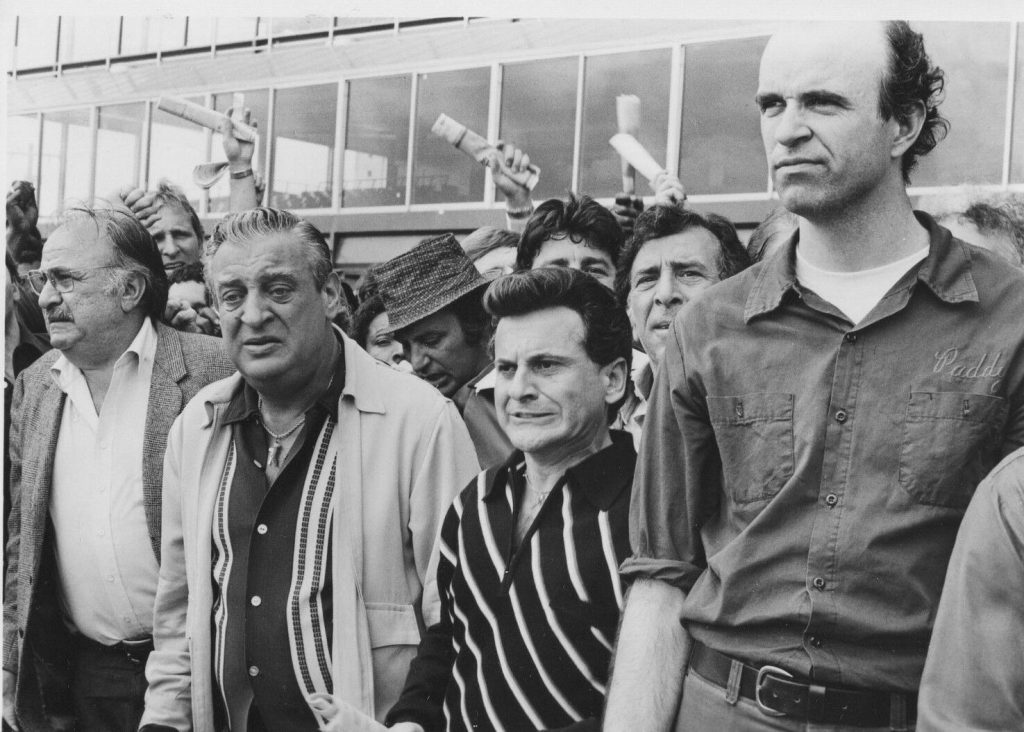
With many (most?) tracks and virtually all casinos in the US closed because of the COVID-19 pandemic, what’s a hardcore gambler to do? One could – and judging from the comments on Twitter, many do – bet on Will Rogers Downs on the days when Tampa, Gulfstream and Oaklawn are dark. But Tampa is closing this weekend, and Oaklawn will close in early May, with no guarantees as to which, if any, of the major tracks will pick up the slack. Can a racetrack regular survive just watching the television feed of the post drag at Gulfstream?
Maybe not, but if that racetrack (or race book or poker room) regular can qualify as a professional gambler, then the recently enacted CARES Act for coronavirus relief might actually offer some help. Of course, as you’ve probably heard, the CARES Act relief package for small business has already run out of money, but let’s be optimistic – because if we weren’t we wouldn’t be gambling in the first place, would we? – and assume that Congress will get around to authorizing more money for the program. When that happens, and the loan spigot is turned on again, here’s how a devoted gambler might get some help.
First, the CARES Act relief applies only to small business, including sole proprietors. So, you have to be in the “trade or business” of gambling. More than 30 years ago, The US Supreme Court, in the Groetzinger case, decided that gambling could indeed be a trade or business, if certain criteria were met. The gambler has to approach betting in a businesslike manner, keep good records, adjust betting methods to reflect changing circumstances, and have a profit objective. That last test – the profit objective – doesn’t have to be realistic, just held in good faith. The courts have even held that a slot machine player, gambling against the house, can be in the trade or business of gambling, as long as she kept good records, changed her playing strategy from time to time, and continued to believe, even in the face of the evidence, that she’d eventually win.
Second, gambling can’t be just a hobby. A professional gambler, to qualify under the Internal Revenue Code and the CARES Act, needs to show some expertise, operate in a businesslike manner, devote a significant amount of time and effort to the task, and actually rely on gambling, not other income, for at least some portion of living expenses. There’s a built-in presumption that, if you show a profit for at least three of the past five years, whatever you’re doing is more than a hobby.
So, let’s say one meets all these criteria. You spend eight or more hours a day with TVG on the screen, make your wagers through a high-rebate ADW account and actually, at least some of the time, squeeze out a bit of a profit. When you’re reduced to playing Will Rogers and Gulfstream, it’s as if you were the proprietor of a high-end restaurant and all of a sudden you can only offer half a dozen take-out dishes to be picked up on the sidewalk. In other words, your business opportunities have been drastically limited.
That’s where the CARES Act could come to the rescue. Under the act, $349 billion was appropriated for small businesses, specifically including independent contractors and sole proprietors. So, the fact that a gambler doesn’t have any employees doesn’t bar assistance. In fact – at least when there’s some more money in the federal pipeline – a gambler deprived of chances to bet by COVID-19 can actually qualify for two different kinds of small-business assistance.
The most attractive option is the Paycheck Protection Program, a loan that can cover up to 2.5 months’ worth of “payroll,” carries an interest rate of just 1%, and can be entirely forgiven if in fact the money is used for “payroll.”
But wait, a professional gambler doesn’t have a payroll, just a bankroll. Well, the Small Business Administration regulations say that’s OK, “net earnings from self-employment” count as payroll for this purpose. Just calculate your average win for that 2.5-month period. The only restriction is that it can’t be at an annual rate of more than $100,000. And you have to show some proof, like tax returns or other records, that you were actually making what you’re claiming.
And our professional gambler can also apply for a $10,000 “Economic Injury Disaster Loan” to cover other costs. That might even buy a few Daily Racing Forms and maybe a Clockers’ Report or two.
There is one potential hiccup: an old regulation, dating back 25 years, bars SBA loans to businesses that derive more than one-third of their income from gambling. It looks like it was intended to bar SBA loans to small casinos, and maybe to ADW facilities. But the CARES Act is, to say the least, ambiguous about whether all the old SBA restrictions apply to these new loans, and the guidance issued so far is replete with statements that the legislation is intended to expand the pool of eligible borrowers. So find a good lawyer and give it a shot.
But what about those degenerates still betting Will Rogers Downs? COVID-19 hasn’t totally shut down US racing. Not a problem. The CARES Act merely requires that a borrower certify that the “current economic uncertainty makes this loan request necessary to support the ongoing operations of the applicant.” Surely someone who normally bets NYRA, Churchill and Santa Anita could make that statement in good faith.
So, all you full-time horseplayers out there: if you’re feeling limited by the current menu of tracks to bet on, just write your Congress members and get some more money in the Small Business Administration pipeline. It’s a safer bet than the 1 horse in the 6th at Will Rogers.


